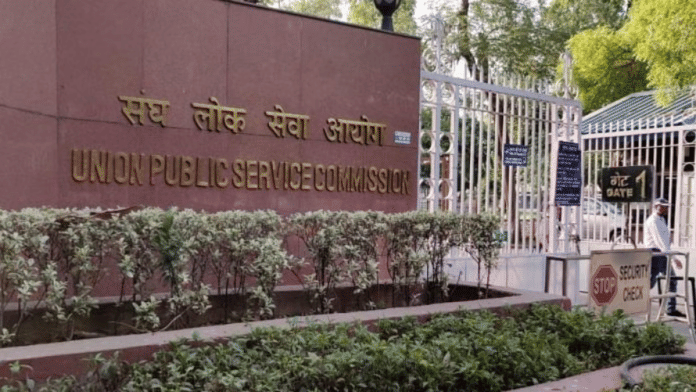New Delhi: In its 100th year, the Union Public Service Commission (UPSC) is undertaking several reforms to ensure faster evaluation and disposal of punishment and promotion cases. The reforms include creating a ChatGPT-like Artificial Intelligence (AI) system of its own, ThePrint has learnt.
The Commission is in the early phases of creating the in-house Artificial Intelligence (AI) system. “We are trying to create an AI system which would capture all existing rules that govern the service of officials, and which we can feed with details of particular cases,” a senior functionary told ThePrint. “It would be such that we can send a query about a case, be it promotion or punishment, and it can give us a summary recommendation, which can then be taken up for discussion with members.”
While the commission can use ChatGPT for the purpose, doing so would compromise the confidentiality of the cases it handles and hence, it needs an in-house system for its processes.
The in-house AI system would help the commission reduce the time it takes to decide on cases significantly since each official has files covering several years of service, which have to be examined manually at the moment. However, the AI system’s recommendations would just be advisory, and human discretion will continue to have more weight.
The shift from manual preliminary examinations of cases to AI would not be without challenges, since currently, most of the files are not digitised, but handwritten or scanned.
Reducing evaluation time
With the aim of using technology as much as possible to make processes more efficient, the Commission is considering a reform, which could cut down the evaluation time of examinations significantly.
In the present system, the preliminary exam of the Civil Service Examination (CSE), for instance, is evaluated through computers since it is a multiple-choice question (MCQ)-type exam. But the Mains Examination is an essay-based exam, wherein the same answer sheet has more than one essay written by the candidate. Each essay has to be evaluated by different examiners, who are experts in different domains. This means the same paper has to physically go to different examiners, making the evaluation process much longer.
The Commission is now considering scanning the answer sheets so that they can go to different examiners simultaneously, thereby cutting down the time for evaluation, the functionary said.
These are part of a slew of tech-based reforms the commission is planning in its centenary year. As reported by ThePrint last week, the UPSC has already developed an app with the National e-Governance Division (NeGD) for face authentication of candidates at examination centres in order to cut down impersonation and fraud. The app would be tested on a pilot basis at a few centres on 14 September for the upcoming National Defence Academy and Naval Academy Examinations.
(Edited by Viny Mishra)
Also read: Success to failure, UPSC is a family affair






